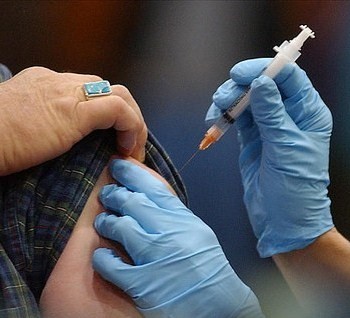Canada: Study prompts provinces to rethink flu plan
Report suggests people who get vaccinated are more likely to catch H1N1

A “perplexing” Canadian study linking H1N1 to seasonal flu shots is throwing national influenza plans into disarray and testing public faith in the government agencies responsible for protecting the nation’s health.
Distributed for peer review last week, the study confounded infectious-disease experts in suggesting that people vaccinated against seasonal flu are twice as likely to catch swine flu.
The paper is under peer review, and lead researchers Danuta Skowronski of the British Columbia Centre for Disease Control and Gaston De Serres of Laval University must stay mum until it’s published.
Met with intense early skepticism both in Canada and abroad, the paper has since convinced several provincial health agencies to announce hasty suspensions of seasonal flu vaccinations, long-held fixtures of public-health planning.
“It has confused things very badly,” said Dr. Ethan Rubinstein, head of adult infectious diseases at the University of Manitoba. “And it has certainly cost us credibility from the public because of conflicting recommendations. Until last week, there had always been much encouragement to get the seasonal flu vaccine.”
On Sunday Quebec joined Alberta, Saskatchewan, Ontario and Nova Scotia in suspending seasonal flu shots for anyone under 65 years of age. Quebec’s Health Ministry announced it would postpone vaccinations until January, clearing the autumn months for health professionals to focus on vaccinating against H1N1, which is expected to the more severe influenza strain this season.
“By the time the H1N1 wave is over, there will be ample time to vaccinate for seasonal flu,” Dr. Rubinstein said.
B.C. is expected to announce a similar suspension during a press conference Monday morning.
Other provinces, including Manitoba, are still pondering a response to the research.
New Brunswick is a lone hold-out, announcing last week it would forge ahead with seasonal flu shots for all residents in October, as originally planned.
So far, the study’s impact is confined to Canada. Researchers in the U.S., Britain and Australia have not reported the same phenomenon. Marie-Paule Kieny, the World Health Organization’s director of vaccine research, said last week the Canadian findings were an international anomaly and could constitute a “study bias.”
An international panel is currently scrutinizing the research data. “The review process has been expedited, so we’re hoping for a response within days,” said Roy Wadia, spokesman for the B.C. Centre for Disease Control.
Dr. Rubinstein, who has read the study, said it appears sound.
“There are a large number of authors, all of them excellent and credible researchers,” he said. “And the sample size is very large – 12 or 13 million people taken from the central reporting systems in three provinces. The research is solid.”
The vaccine suspensions do not apply for people over 65. Seniors are considered more susceptible to severe seasonal flu symptoms. At the same time, they carry antibodies from a 1957 pandemic that seem to neutralize the current version of H1N1.
Even if the statistical link is proven, the medical link between seasonal flu shots and H1N1 remains mysterious. One hypothesis suggests seasonal flu vaccine preoccupies the cells that would otherwise produce antibodies against H1N1.
But, according to Dr. Rubinstein, the research shows that people who received the seasonal shot during the 2007-08 flu season remained vulnerable to swine flu well into 2009 – an interval that should provide most immune systems ample restoration time.
“We don’t understand the mechanism,” Dr. Rubinstein said. “At the present time it is quite perplexing.”

